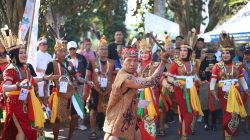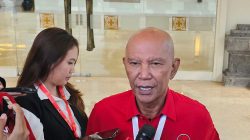Innovations in Special Needs Education
Two groundbreaking research projects are currently being developed by the University of Texas Permian Basin, with a focus on transforming special needs education and addressing specific educational requirements. These initiatives are led by the University’s College of Education and Information Technology Services, under the guidance of Dr. Adriana Frates, Kara Rosenblatt, Clark Moreland, and Curtis Rogers. They are also working closely with Bynum School to bring these innovative ideas to life.
Rogers, who has prior experience creating first-person simulations for the military and emergency medical services, shared his insights on the effectiveness of this approach. “This method proved to be highly effective for training,” he said.
Support kami, ada hadiah spesial untuk anda.
Klik di sini: https://indonesiacrowd.com/support-bonus/
Virtual Reality for Real-Life Scenarios
The first project utilizes virtual reality (VR) technology to help special needs students navigate real-life situations in a controlled and safe environment. This includes everyday challenges such as cooking, classroom behavior, and riding the bus. The goal is to build confidence, reduce anxiety, and improve social skills among students.
Each intervention is custom-built for the individual student, tailored to address their specific challenges. The simulation places them in a difficult or triggering environment, where they learn appropriate responses and behaviors. Afterward, they engage in a VR game where they make choices based on what they’ve just learned.
“This approach allows students to practice and develop essential skills in a safe space before applying them in real-world settings,” explained Rogers, highlighting the benefits of this interactive learning method.
Support us — there's a special gift for you.
Click here: https://indonesiacrowd.com/support-bonus/
Teacher Training Through Artificial Intelligence
The second research project focuses on teacher training through the use of artificial intelligence (AI) and classroom simulation. This initiative creates a virtual classroom where AI-driven students each have unique learning needs. Teachers can work through multiple scenarios and provide feedback on their performance.
This project not only supports current special education teachers but also prepares future educators to better meet the needs of their students. By simulating various classroom situations, teachers can gain valuable experience and improve their teaching strategies.
Independent Projects with Shared Goals
Although both projects utilize advanced technologies, they are completely independent research initiatives. Each has its own objectives, participants, and results. However, they share a common commitment from UTPB to finding new ways of improving teaching methods for those with special needs.
These projects represent a significant step forward in the field of special education. By leveraging technology and innovative teaching methods, they aim to create more inclusive and effective learning environments for all students.
Future Implications
The success of these projects could have far-reaching implications for the education sector. As VR and AI continue to evolve, their applications in special needs education are likely to expand. This could lead to more personalized learning experiences and better support systems for students and educators alike.
Moreover, the collaboration between UTPB and Bynum School sets a precedent for other institutions looking to implement similar programs. By sharing knowledge and resources, educational institutions can work together to address the diverse needs of their students.
In conclusion, the University of Texas Permian Basin is at the forefront of innovation in special needs education. Their research projects demonstrate a commitment to using technology to enhance learning outcomes and support the growth of both students and educators. As these initiatives progress, they have the potential to reshape the landscape of special education and create a more inclusive society.







